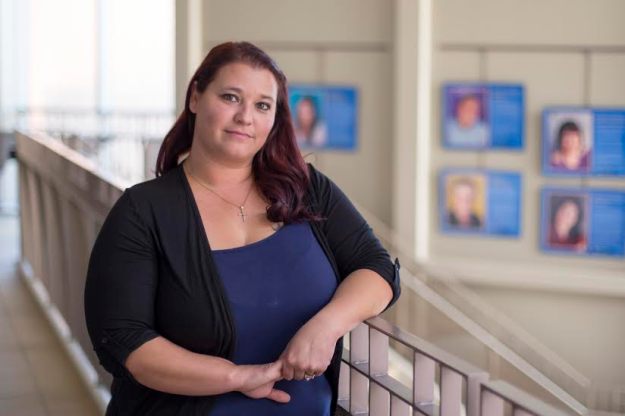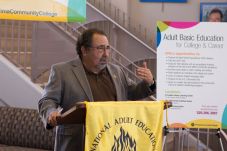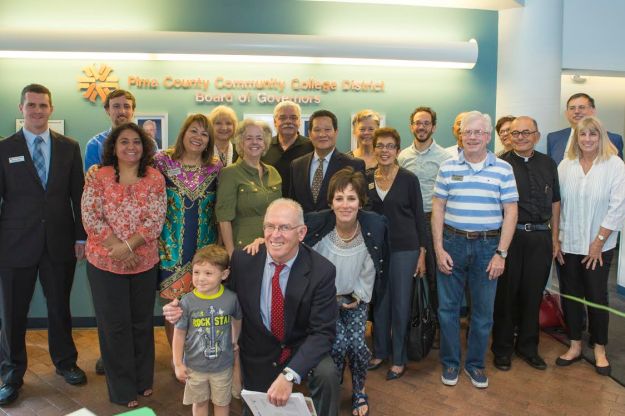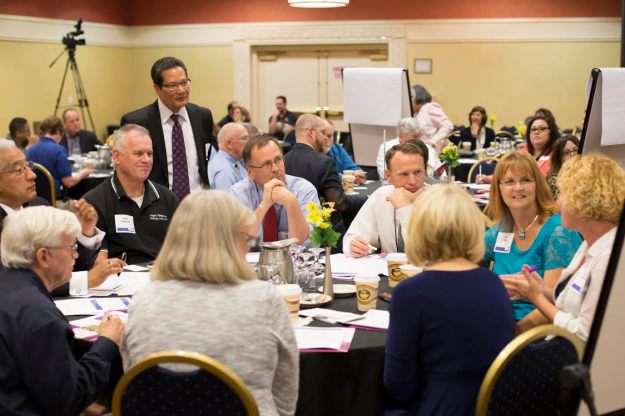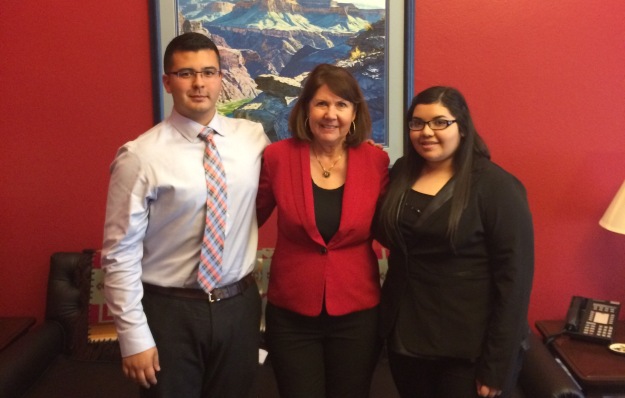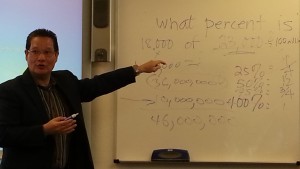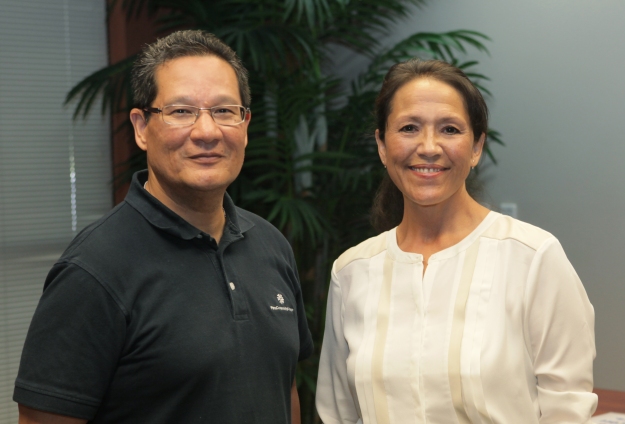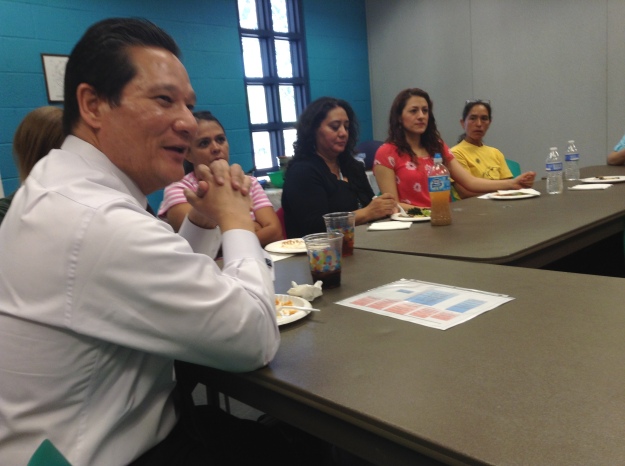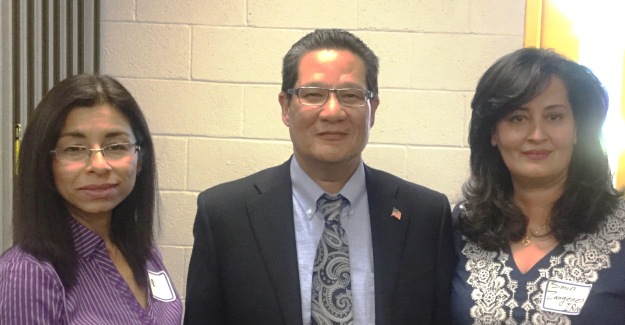
With new citizens Viriviana and Simin (right)
Earlier this week, I joined with business, education and government partners at an important announcement by Mayor Jonathan Rothschild: Tucson would join more than two dozen major U.S. cities in the Cities for Citizenship initiative.
The mayor explained that people who want to become U.S. citizens can face educational and financial hurdles, and that Cities for Citizenship would support those who want to take on the rights and responsibilities that citizenship entails.
The announcement was made at the College’s El Pueblo Liberty Learning Center. It was an appropriate venue, as PCC has for years been a provider of effective citizenship education.
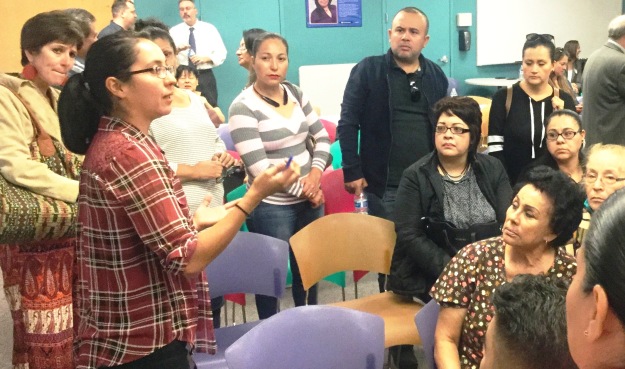
After the announcement, Xail Hernandez, a PCC instructor in English Language Acquisition for Adults who also works with our AmeriCorps program, shared information.
Our citizenship classes are part of our Adult Basic Education for College & Career division. All of our classes, including citizenship classes, are free and open to everyone. This year 366 students received more than 3,300 hours on Rights and Responsibilities of Citizenship instruction at classes taught at the El Pueblo Liberty Learning Center, El Rio Learning Center, and the 29th Street Coalition Center, as well as several area libraries.
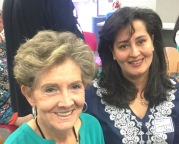
Simin and Linda, a volunteer citizenship instructor
Citizenship instructors are trained volunteers who get ongoing support and professional development. We have some who have volunteered with us for over 15 years.
About 60 of our students have become citizens this year, and two were acknowledged during the announcement of the initiative.
This topic is personal for me. My mother came to the U.S. from South Korea in the 1960s, seeking her vision of the American Dream. My family’s story is, at its essence, similar to hundreds of millions of stories in our great country. As one speaker put it, virtually all of us are descended from immigrants.
PCC is eager to help provide the education component to the Cities for Citizenship initiative. We are proud to join with the Mayor’s Office, Chicanos Por La Causa, Citi, Vantage West Credit Union, Pima County Library and the U.S. Citizenship and Immigration Services to empower new citizens who contribute to the ongoing prosperity and sustainability of our nation.

 Some of the topics addressed in the Report:
Some of the topics addressed in the Report: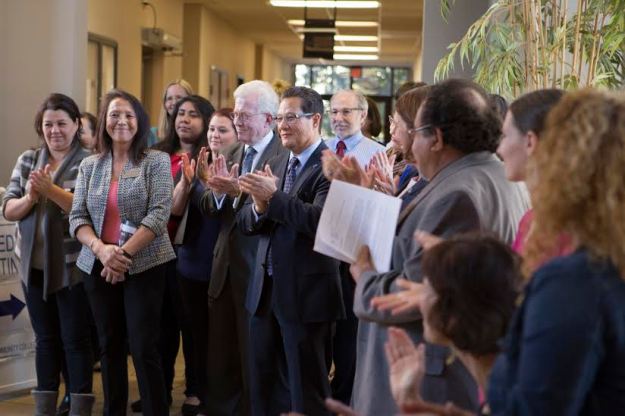 I was privileged to attend the beginning of a new era at the College recently. I was among about 50 students, educators and community leaders, including U.S. Rep. Raúl Grijalva, for the announcement that Pima Community College Adult Education has become Adult Basic Education for College and Career (ABECC).
I was privileged to attend the beginning of a new era at the College recently. I was among about 50 students, educators and community leaders, including U.S. Rep. Raúl Grijalva, for the announcement that Pima Community College Adult Education has become Adult Basic Education for College and Career (ABECC).